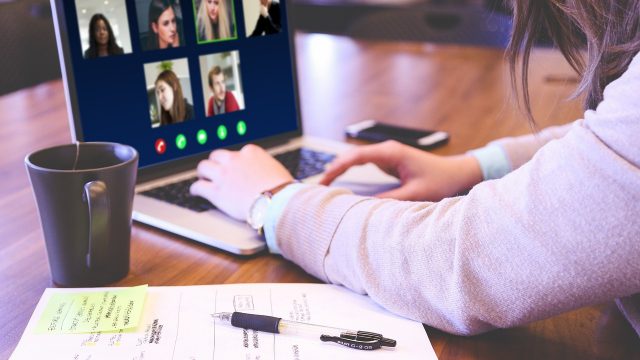By Sajid Iqbal
Virtual auditing is not a very longstanding practice in ISO standards. The term “virtual auditing” was first introduced in ISO 19011:2018, “Guidelines for auditing management systems.” This addition is not only compatible with current times but is also a 21st century necessity. Moreover, in a world that has suddenly and dramatically altered due to the COVID-19 pandemic, the significance of virtual auditing has become even more notable. Apart from the effectiveness and cost-efficiency aspects, this audit methodology has become essential to maintain social distancing and ensure the health and safety of both audit participants and auditors.
During the second half of 2020, many business professionals witnessed a dramatic change in work culture. In particular, working from home has becoming increasingly popular and widely practiced. Under these circumstances, management system auditors must also adapt and simultaneously improve some must-have information and communications technology (ICT) skillsets. They need to know the proper use of audio and video hardware, online meeting platforms, data protection protocols, and cybersecurity. In short, auditors must be tech-savvy to maintain pace with the fast-changing work culture.
Let’s start with audio and video hardware. We assume most of us will be using a laptop, which already has a webcam and microphone, or a desktop with pluggable video and audio devices. Whatever the situation, auditors need to understand hardware specifications and the right way of using it. For a quick fact check, watch Brian Cooley’s lifesaving hacks on using webcams and microphones properly in which he briefly discusses some simple techniques to make your online presence bold and professional. Then comes the knowledge of using online meeting platforms like Zoom, Microsoft 360, Skype, Google Meet, and others. These days, Zoom is becoming increasingly popular due to its reliability, larger virtual gathering capability, and other special offerings, e.g., screen sharing, screen recording, and moderating.
At this point, you might be wondering how and where to learn Zoom operation properly. You will be glad to know that you don’t need to go to school again; rather, simply visit Zoom Video Tutorials to learn both the basic and advanced features of the platform. After learning how to use it, it’s important to practice different Zoom functions with friends and family through demo calls. Send a meeting link to a friend and test how it works in reality. Following these tips will not only help you gain these IT competencies but also improve your confidence in using the technology.
Let’s discuss the significance of understanding the auditee or the audit client’s data protection protocols. Every company has its own sets of guidelines to protect data privacy and the auditor needs to understand these requirements. It is an auditor’s responsibility to fully understand both the auditee and the software provider’s data-sharing policies, to disclose issues, and to obtain formal consent from clients before using such ICT platforms for remote audit activities. Understanding national and international ICT rules, regulations, and ethics are also interlinked to ensure cybersecurity and privacy.
The pandemic has led to the growing popularity of different videoconferencing and data-sharing platforms; as a consequence, new privacy and cybersecurity risks have become growing concerns. The U.S. Federal Trade Commission recently shared some scenario-based privacy tips on their blog for businesses to avoid any videoconference-related privacy issues. These tips are mostly about self-awareness and certain privacy-related issues that we have already discussed earlier.
Finally, if grandparents can get tech-savvy to keep in touch, why can’t we? A recent study suggests that 53 percent of U.S. adults more than 65 years old are using different online platforms, and one in three of these seniors are using social networks; living apart from grandkids does not mean never seeing them. Margie Tucker, 62, of Voorhees, New Jersey, says she was worried that she and her husband, Steven, were going to be strangers to their four-year-old grandson as he lived in Denver, so she taught herself to use Skype.
I want to conclude by asking, did you ever imagine that technology would be an inevitable component of maintaining personal relationships, continuing professional activities, and even hosting high-level discussions among governments? Maybe some of us did, but most didn’t. However, this is our new reality and the faster we realize and adapt, the better we can ensure inclusivity and the relevance of the auditing profession.
About the author
Sajid Iqbal has more than seven years of experience working with government agencies, INGOs and universities to promote innovation, develop M&E frameworks, conduct management system audits, advocate environmental and youth policies, and design and implement developmental projects. He was recognized in the Queen’s Young Leaders program in 2017 and was listed on Forbes 30 Under 30 Social Entrepreneurs list in 2018.

